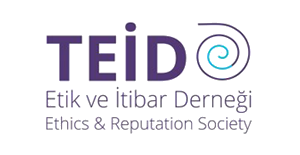World Trade Organization hails historic first global trade agreement (December/07/2013).
Commerce ministers capped days of hard negotiations Dec. 7 by approving a WTO agreement on international commerce they hailed as a "historic" boost for the trade body.
The agreement falls far short of the World Trade Organization\'s lofty but elusive vision of tearing down global trade barriers through its frustrating, 12-year-old DohaRound of talks.
But the accord reached on the Indonesian resort island of Bali nevertheless marks the first global agreement struck by the Geneva-based body since its 1995 founding.
"For the first time in our history, the WTO has truly delivered," an exhausted but relieved WTO director-general Roberto Azevedo told a closing ceremony.
"We have put the \'World\' back into the World Trade Organization," he told delegates.
The pact includes commitments to facilitate trade by simplifying customs procedures. The meeting also formally accepted Yemen as the group\'s 160th member.
The Washington-based Peterson Institute for International Economics estimated in a report this year the customs measures could create $1 trillion in economic activity and 21 million jobs if properly implemented.
The report did not detail how those figures were calculated.
WTO officials have conceded however that uncertainty surrounded how effectively the measures would be implemented, especially in underdeveloped countries.
Azevedo said it had important symbolic value for Doha. "The decisions we have taken here are an important stepping-stone toward the completion of the Doha Round," he said, adding the WTO would soon get to work on a "road map" for reviving Doha.
Global trade rules
The Doha Round aims to remove hurdles to commerce and establish a globally binding framework of trade rules fair to both rich and poor countries. But protectionist disputes among the WTO\'s members have foiled agreement.
Azevedo has expressed concern over the rise of alternative regional trading pacts that he fears could render the WTO obsolete if the Geneva-based body did not start clinching major worldwide agreements.
The Bali negotiations teetered repeatedly on the brink of collapse due to various differences.
India - which aims to stockpile and subsidise grain for its millions of poor - had demanded that such measures be granted indefinite exemption from WTO challenge.
The United States, which implements large farm supports of its own, and others had said India\'s grain policy could violate WTO limits on subsidies.
A later hurdle emerged as four Latin American countries objected to the removal in the accord\'s text of a reference to the U.S. embargo on Cuba. Compromise wording smoothed over those hurdles.
The agreement will come as a major personal victory for the Brazilian Azevedo, who took the organisation\'s helm in September and injected a sense of urgency into the talks. "With this landmark accord on trade facilitation and other issues, the WTO has re-established its credibility as an indispensable forum for trade negotiations," the U.S. Chamber of Commerce said in a statement released in Washington.
The package also included pledges to limit agricultural subsidies, and policies to aid least-developed countries. As the Doha Round has faltered, alternative regional pacts have emerged between major trading nations, such as the 12-country Trans-Pacific Partnership (TPP) spearheaded by Washington. TPP negotiators hold their latest meeting in Singapore starting Saturday as they work to hammer out the outlines of that trade alliance.
NUSA DUA - Agence France-Presse /Photo REUTERS









